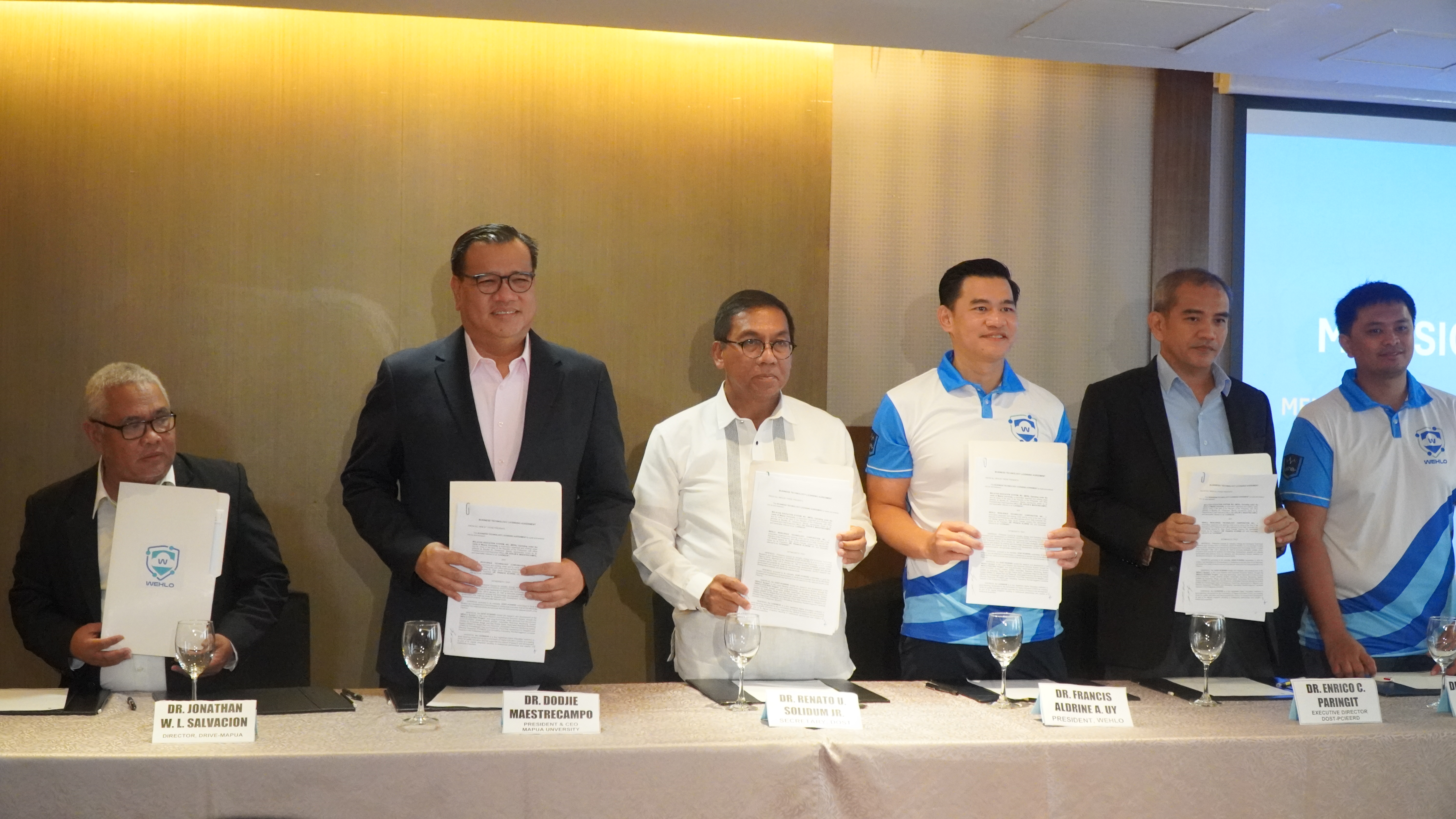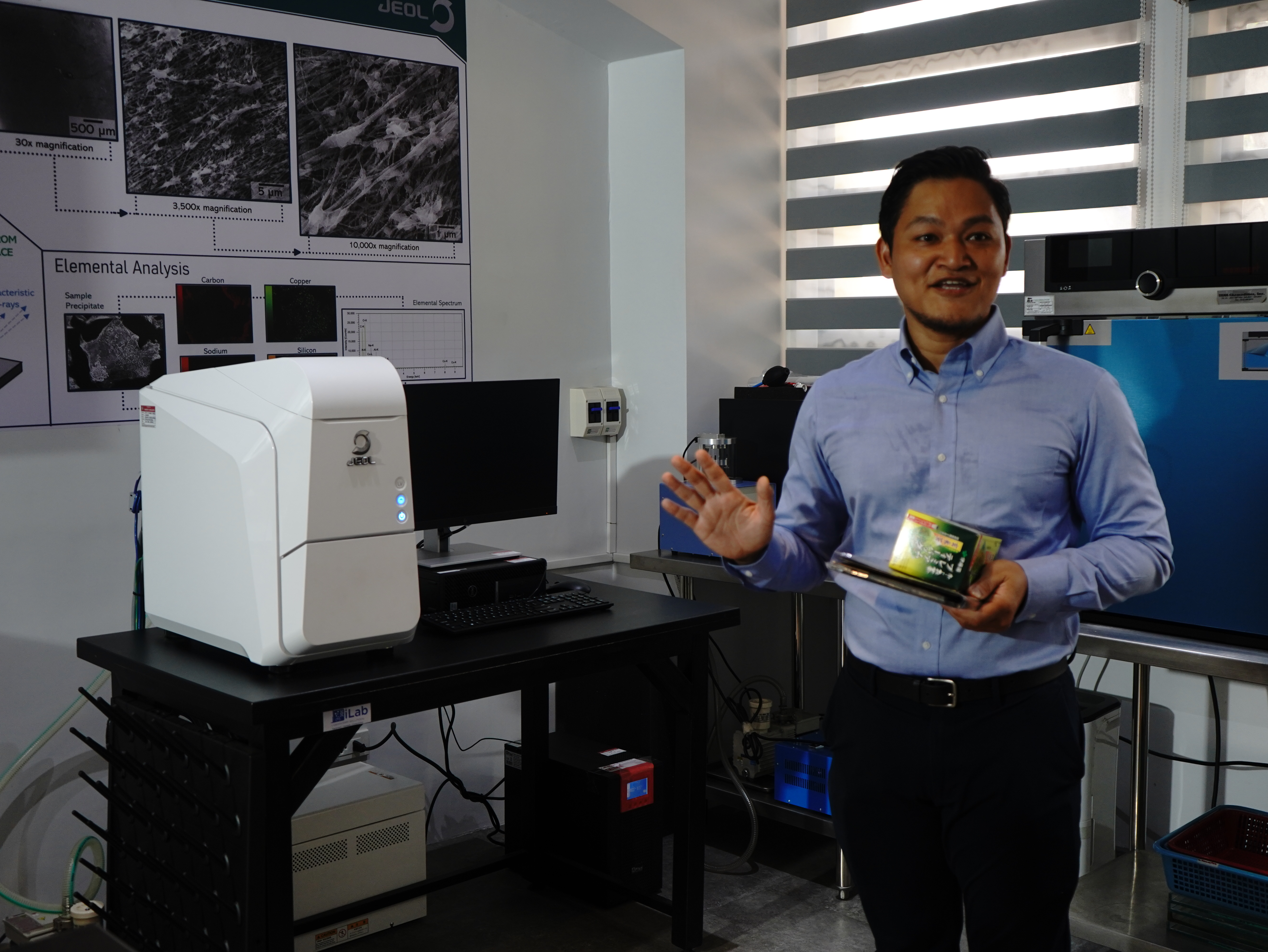The Department of Science and Technology and Mapua University launched on Friday, May 31, 2024, a 24/7 localized weather information and impact monitoring system to help the country prepare for the onslaught of the coming La Niña.
Developed by Mapúa University School of Civil, Environmental and Geological Engineering led by Dr. Francis Aldrine Uy and supported by the Department of Science and Technology – Philippine Council for Industry, Energy, and Emerging Technology Research and Development (DOST-PCIEERD), this technology will help augment the disaster risk reduction and management operations as the country braces for La Niña.
“We believe that scientific advancements are not just about immediate responses to natural hazards and consequent disasters; they are about creating long-term solutions that reduce risks and promote sustainable development. As we face increasing disaster risks, we must move beyond traditional approaches and embrace innovations that provide solutions and open opportunities for a better tomorrow” DOST Secretary, Dr. Renato U. Solidum Jr. said.
WEHLO or Localized Weather, Environment, and Hydromet Monitoring System is among the funded technologies of the DOST-PCIEERD under the Funding Assistance for Spin-off and Translation of Research in Advancing Commercialization (FASTRAC) Program. The funding provided amounts to P15 million.
“Innovative DRRM technologies like WEHLO play a crucial role in our disaster preparedness. As La Niña approaches, precise weather information really empowers municipalities and enhances disaster management,” said DOST– PCIEERD Executive Director, Dr. Enrico Paringit.
The Philippines experiences an average of 20 typhoons every year. According to the DOST -Philippine Atmospheric, Geophysical and Astronomical Services Administration (DOST-PAGASA), La Niña may occur during the second semester of this year as El Niño weakens. Last year, Project WEHLO and MAPUA University inked a memorandum of agreement for weather data sharing with DOST-PAGASA.
In 2023, Project WEHLO already deployed and established partnerships with the Local
Government Units (LGUs) of Infanta-General Nakar, Quezon, and Pantabangan-Angat, Bulacan. The technology helps municipalities gather reliable and accurate real-time data with continuous transmission in times of disaster when bad weather conditions, signal interruptions, and power outages occur.
Unlike other existing weather monitoring systems in the country, WEHLO ensures that its system, adheres to the international standard set by the World Meteorological Organization (WMO). Project WEHLO also developed an improved version of the Automated Real-Time Monitoring System (ARMS) sensor with the DOST-PAGASA.
“One of the advantages of this technology is that we can modify the system based on the users’ needs which means, we can manually calibrate the system and provide localized readings including rainfall, temperature, humidity, pressure, soil moisture, wind speed, wind direction, flow velocity, and water level,” said Dr. Uy, CEO of USHER Technology Inc.
Users can access data through their web portal and mobile application with an alert warning feature.
Aside from the Disaster Risk Reduction and the Localized Weather Monitoring, WEHLO also monitors and provides data on watersheds which can be useful for dam operators and agriculture for farm management.
MOA Signing between DOST, DOST - PCIEERD, Mapua University and Project WEHLO during the public launch of WEHLO on May 31, 2024 at The Bayleaf Hotel Intramuros Manila (L-R: Dr. Jonathan Salvacion, Director of Directed Research for Innovation & Value Enhancement, Dr. Dodjie Maestrecampo, President of Mapua University, Dr. Renato U. Solidum Jr., Secretary of DOST, Dr. Francis Aldrin Uy, Project Leader of WEHLO and CEO of USHER Technologies Inc., Dr. Enrico Paringit, Executive Director of DOST-PCIEERD, Dr. Cris Edward Monjardin the Co-founder of WEHLO)
DOST Secretary, Dr. Renato U. Solidum Jr. discusses the importance of disaster resilience and significance of WEHLO in his keynote speech during the public launch of WEHLO on May 31, 2024, at The Bayleaf Hotel Intramuros Manila
USHER Technologies Inc. and Project Leader of WEHLO, Dr. Francis Aldrin Uy delivers his speech expressing his gratitude to the government's support on Project WEHLO








